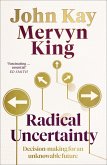James Mccalman, David Potter
Leading Cultural Change (eBook, ePUB)
The Theory and Practice of Successful Organizational Transformation
38,95 €
38,95 €
inkl. MwSt.
Sofort per Download lieferbar

19 °P sammeln
38,95 €
Als Download kaufen

38,95 €
inkl. MwSt.
Sofort per Download lieferbar

19 °P sammeln
Jetzt verschenken
Alle Infos zum eBook verschenken
38,95 €
inkl. MwSt.
Sofort per Download lieferbar
Alle Infos zum eBook verschenken

19 °P sammeln
James Mccalman, David Potter
Leading Cultural Change (eBook, ePUB)
The Theory and Practice of Successful Organizational Transformation
- Format: ePub
- Merkliste
- Auf die Merkliste
- Bewerten Bewerten
- Teilen
- Produkt teilen
- Produkterinnerung
- Produkterinnerung

Bitte loggen Sie sich zunächst in Ihr Kundenkonto ein oder registrieren Sie sich bei
bücher.de, um das eBook-Abo tolino select nutzen zu können.
Hier können Sie sich einloggen
Hier können Sie sich einloggen
Sie sind bereits eingeloggt. Klicken Sie auf 2. tolino select Abo, um fortzufahren.

Bitte loggen Sie sich zunächst in Ihr Kundenkonto ein oder registrieren Sie sich bei bücher.de, um das eBook-Abo tolino select nutzen zu können.
With coverage of the major theories and concepts alongside diagnostic tools and a practical framework for implementation, Leading Cultural Change will help the reader analyse and diagnose their current organizational culture, become aware of the key challenges and how to overcome them and learn how to adapt their leadership style, ensuring they are fit to lead a cultural change programme. Taking in core topics such as change context, language and dialogue as a key cultural process and the change team process, it uses a longitudinal case study of Cordia, a public sector organization…mehr
- Geräte: eReader
- mit Kopierschutz
- eBook Hilfe
- Größe: 1.67MB
- FamilySharing(5)
Andere Kunden interessierten sich auch für
![The Secret Sauce for Leading Transformational Change (eBook, ePUB) The Secret Sauce for Leading Transformational Change (eBook, ePUB)]() Ian ZiskinThe Secret Sauce for Leading Transformational Change (eBook, ePUB)34,95 €
Ian ZiskinThe Secret Sauce for Leading Transformational Change (eBook, ePUB)34,95 €![Leading the Project Revolution (eBook, ePUB) Leading the Project Revolution (eBook, ePUB)]() Leading the Project Revolution (eBook, ePUB)34,95 €
Leading the Project Revolution (eBook, ePUB)34,95 €![The Corporate Tribe (eBook, ePUB) The Corporate Tribe (eBook, ePUB)]() Danielle BraunThe Corporate Tribe (eBook, ePUB)37,95 €
Danielle BraunThe Corporate Tribe (eBook, ePUB)37,95 €![Radical Uncertainty (eBook, ePUB) Radical Uncertainty (eBook, ePUB)]() Mervyn KingRadical Uncertainty (eBook, ePUB)3,99 €
Mervyn KingRadical Uncertainty (eBook, ePUB)3,99 €![2030: How Today's Biggest Trends Will Collide and Reshape the Future of Everything (eBook, ePUB) 2030: How Today's Biggest Trends Will Collide and Reshape the Future of Everything (eBook, ePUB)]() Mauro F. Guillén2030: How Today's Biggest Trends Will Collide and Reshape the Future of Everything (eBook, ePUB)7,99 €
Mauro F. Guillén2030: How Today's Biggest Trends Will Collide and Reshape the Future of Everything (eBook, ePUB)7,99 €![Cross-cultural Challenges in International Management (eBook, ePUB) Cross-cultural Challenges in International Management (eBook, ePUB)]() Cross-cultural Challenges in International Management (eBook, ePUB)42,95 €
Cross-cultural Challenges in International Management (eBook, ePUB)42,95 €![Leading Tomorrow (eBook, ePUB) Leading Tomorrow (eBook, ePUB)]() Raj AseervathamLeading Tomorrow (eBook, ePUB)32,95 €
Raj AseervathamLeading Tomorrow (eBook, ePUB)32,95 €-
-
-
With coverage of the major theories and concepts alongside diagnostic tools and a practical framework for implementation, Leading Cultural Change will help the reader analyse and diagnose their current organizational culture, become aware of the key challenges and how to overcome them and learn how to adapt their leadership style, ensuring they are fit to lead a cultural change programme. Taking in core topics such as change context, language and dialogue as a key cultural process and the change team process, it uses a longitudinal case study of Cordia, a public sector organization transitioning into an LLP, to enhance learning and understanding.
Leading Cultural Change is a unique text, rooted in behavioural sciences, which explores the topic as an organizational necessity to achieving sustained competitive advantage.
Leading Cultural Change is a unique text, rooted in behavioural sciences, which explores the topic as an organizational necessity to achieving sustained competitive advantage.
Produktdetails
- Produktdetails
- Verlag: Kogan Page eBook
- Seitenzahl: 240
- Erscheinungstermin: 3. Mai 2015
- Englisch
- ISBN-13: 9780749473044
- Artikelnr.: 42830424
- Verlag: Kogan Page eBook
- Seitenzahl: 240
- Erscheinungstermin: 3. Mai 2015
- Englisch
- ISBN-13: 9780749473044
- Artikelnr.: 42830424
- Herstellerkennzeichnung Die Herstellerinformationen sind derzeit nicht verfügbar.
Professor James McCalman, formerly MD of Sotheby's Institute of Art, is currently the Head of the Centre for Strategy and Leadership at the University of Portsmouth. He has previously enjoyed roles as MBA Director at the Universities of Glasgow and Strathclyde as well as at Ashridge Business School, before moving to senior leadership roles in the private and charitable sectors.
Dr David Potter is the founder of The Cultural Change Company, which specializes in enabling cultural change interventions. He is a qualified NLP Practitioner and holds both an MBA and a PhD specialising in strategy design and cultural change dynamics. He frequently teaches and presents to students on MBA and Executive courses on the topic of cultural change, including at Adam Smith Business School University of Glasgow, University of St Andrews Business School, Glasgow Caledonian University and Glasgow University Business School.
Dr David Potter is the founder of The Cultural Change Company, which specializes in enabling cultural change interventions. He is a qualified NLP Practitioner and holds both an MBA and a PhD specialising in strategy design and cultural change dynamics. He frequently teaches and presents to students on MBA and Executive courses on the topic of cultural change, including at Adam Smith Business School University of Glasgow, University of St Andrews Business School, Glasgow Caledonian University and Glasgow University Business School.
Introduction
Part 1 Leading cultural change. Theoretical perspectives
01 Cultural change management
Introduction
Change management defined
First- and second-order change
The cultural paradigm
The social construction of the change problem
Change management as a social process pioneered by Kurt Lewin
Conclusion
02 Organization development
Introduction
The unitarist perspective and the rise of Taylorism
The iron grip of scientific management and bureaucracy
The pluralist perspective
What do we mean by organization development?
Conclusion
03 Cultural change literature
Introduction
Origins
Fashions, fads and the honest grapplers
The academic, the manager and the consultant
The third way
Conclusion
04 A theory of culture
Introduction
Defining culture
Culture as a sense-making device
Building a model of culture
Cultural themes
Expressions of culture
Diagnosing cultural themes in use
Cultural hegemony
The cultural paradigm
Conclusion
05 Cultural management as a form of control
Introduction
Cultural management as a control mechanism
Exploring cultural hegemony
Identity work
Power
Changing culture is a power struggle
Conclusion
06 Leadership as a cultural variable
Introduction
It all started with Peter Drucker
Identity work again
The leadership paradox
What they do
Who serves whom?
Conclusion
07 Leadership and the management of meaning
Introduction
It's all in the interpretation
Leaders manage conflict
Leaders build commitment
Leadership is a political process
A model of leadership
Characteristics of a transformational leader
Conclusion
08 Language as a cultural process
Introduction
Language and cultural change
Language and discourse routes in management settings
The language game and cultural change work
Linguistic hegemony
Dialogue and cultural change
How to engage in dialogue
Conclusion
09 Ethnography as a tool for cultural change
Introduction
Ethnography defined
Digging out the detail
Differentiating ethnography from the rest
Power and organizational politics
A multi-perspective approach
Conclusion
Part 2 Cultural and strategic tensions. When theory meets practice
10 The client and its problem
Introduction
The client organization
Managing cultural and strategic tensions
The business strategy
Diagnosing cultural problems
The research process
Key issues: cultural themes in use that needed to change
Conclusion
11 Change technologies
Introduction
The Cordia Change Network
The change team structure
Building the case for change
The seven-step development processes of cultural change leaders
Technology as theatre - the change team process
Case study: Managing absence levels
Conclusion
12 What did the people think?
Introduction
Research methodology
Emergent research themes
Identity positions and motivational support
Self-actualization experiences
Conclusion
13 Reflective learning
Introduction
Leadership
Rapport
Dialogue
Motivation
Vision building
Politics
Assumptions and values
Cultural themes
Qualitative research is essential
Building learning
Conclusion
14 Closing thoughts
Cultural building takes time
Cultural incubation
Partial metamorphosis
Dormant cultural themes
Cultural change in the safe zone
Leading cultural domains
Closing comments
References
Index
Part 1 Leading cultural change. Theoretical perspectives
01 Cultural change management
Introduction
Change management defined
First- and second-order change
The cultural paradigm
The social construction of the change problem
Change management as a social process pioneered by Kurt Lewin
Conclusion
02 Organization development
Introduction
The unitarist perspective and the rise of Taylorism
The iron grip of scientific management and bureaucracy
The pluralist perspective
What do we mean by organization development?
Conclusion
03 Cultural change literature
Introduction
Origins
Fashions, fads and the honest grapplers
The academic, the manager and the consultant
The third way
Conclusion
04 A theory of culture
Introduction
Defining culture
Culture as a sense-making device
Building a model of culture
Cultural themes
Expressions of culture
Diagnosing cultural themes in use
Cultural hegemony
The cultural paradigm
Conclusion
05 Cultural management as a form of control
Introduction
Cultural management as a control mechanism
Exploring cultural hegemony
Identity work
Power
Changing culture is a power struggle
Conclusion
06 Leadership as a cultural variable
Introduction
It all started with Peter Drucker
Identity work again
The leadership paradox
What they do
Who serves whom?
Conclusion
07 Leadership and the management of meaning
Introduction
It's all in the interpretation
Leaders manage conflict
Leaders build commitment
Leadership is a political process
A model of leadership
Characteristics of a transformational leader
Conclusion
08 Language as a cultural process
Introduction
Language and cultural change
Language and discourse routes in management settings
The language game and cultural change work
Linguistic hegemony
Dialogue and cultural change
How to engage in dialogue
Conclusion
09 Ethnography as a tool for cultural change
Introduction
Ethnography defined
Digging out the detail
Differentiating ethnography from the rest
Power and organizational politics
A multi-perspective approach
Conclusion
Part 2 Cultural and strategic tensions. When theory meets practice
10 The client and its problem
Introduction
The client organization
Managing cultural and strategic tensions
The business strategy
Diagnosing cultural problems
The research process
Key issues: cultural themes in use that needed to change
Conclusion
11 Change technologies
Introduction
The Cordia Change Network
The change team structure
Building the case for change
The seven-step development processes of cultural change leaders
Technology as theatre - the change team process
Case study: Managing absence levels
Conclusion
12 What did the people think?
Introduction
Research methodology
Emergent research themes
Identity positions and motivational support
Self-actualization experiences
Conclusion
13 Reflective learning
Introduction
Leadership
Rapport
Dialogue
Motivation
Vision building
Politics
Assumptions and values
Cultural themes
Qualitative research is essential
Building learning
Conclusion
14 Closing thoughts
Cultural building takes time
Cultural incubation
Partial metamorphosis
Dormant cultural themes
Cultural change in the safe zone
Leading cultural domains
Closing comments
References
Index
Introduction
Part 1 Leading cultural change. Theoretical perspectives
01 Cultural change management
Introduction
Change management defined
First- and second-order change
The cultural paradigm
The social construction of the change problem
Change management as a social process pioneered by Kurt Lewin
Conclusion
02 Organization development
Introduction
The unitarist perspective and the rise of Taylorism
The iron grip of scientific management and bureaucracy
The pluralist perspective
What do we mean by organization development?
Conclusion
03 Cultural change literature
Introduction
Origins
Fashions, fads and the honest grapplers
The academic, the manager and the consultant
The third way
Conclusion
04 A theory of culture
Introduction
Defining culture
Culture as a sense-making device
Building a model of culture
Cultural themes
Expressions of culture
Diagnosing cultural themes in use
Cultural hegemony
The cultural paradigm
Conclusion
05 Cultural management as a form of control
Introduction
Cultural management as a control mechanism
Exploring cultural hegemony
Identity work
Power
Changing culture is a power struggle
Conclusion
06 Leadership as a cultural variable
Introduction
It all started with Peter Drucker
Identity work again
The leadership paradox
What they do
Who serves whom?
Conclusion
07 Leadership and the management of meaning
Introduction
It's all in the interpretation
Leaders manage conflict
Leaders build commitment
Leadership is a political process
A model of leadership
Characteristics of a transformational leader
Conclusion
08 Language as a cultural process
Introduction
Language and cultural change
Language and discourse routes in management settings
The language game and cultural change work
Linguistic hegemony
Dialogue and cultural change
How to engage in dialogue
Conclusion
09 Ethnography as a tool for cultural change
Introduction
Ethnography defined
Digging out the detail
Differentiating ethnography from the rest
Power and organizational politics
A multi-perspective approach
Conclusion
Part 2 Cultural and strategic tensions. When theory meets practice
10 The client and its problem
Introduction
The client organization
Managing cultural and strategic tensions
The business strategy
Diagnosing cultural problems
The research process
Key issues: cultural themes in use that needed to change
Conclusion
11 Change technologies
Introduction
The Cordia Change Network
The change team structure
Building the case for change
The seven-step development processes of cultural change leaders
Technology as theatre - the change team process
Case study: Managing absence levels
Conclusion
12 What did the people think?
Introduction
Research methodology
Emergent research themes
Identity positions and motivational support
Self-actualization experiences
Conclusion
13 Reflective learning
Introduction
Leadership
Rapport
Dialogue
Motivation
Vision building
Politics
Assumptions and values
Cultural themes
Qualitative research is essential
Building learning
Conclusion
14 Closing thoughts
Cultural building takes time
Cultural incubation
Partial metamorphosis
Dormant cultural themes
Cultural change in the safe zone
Leading cultural domains
Closing comments
References
Index
Part 1 Leading cultural change. Theoretical perspectives
01 Cultural change management
Introduction
Change management defined
First- and second-order change
The cultural paradigm
The social construction of the change problem
Change management as a social process pioneered by Kurt Lewin
Conclusion
02 Organization development
Introduction
The unitarist perspective and the rise of Taylorism
The iron grip of scientific management and bureaucracy
The pluralist perspective
What do we mean by organization development?
Conclusion
03 Cultural change literature
Introduction
Origins
Fashions, fads and the honest grapplers
The academic, the manager and the consultant
The third way
Conclusion
04 A theory of culture
Introduction
Defining culture
Culture as a sense-making device
Building a model of culture
Cultural themes
Expressions of culture
Diagnosing cultural themes in use
Cultural hegemony
The cultural paradigm
Conclusion
05 Cultural management as a form of control
Introduction
Cultural management as a control mechanism
Exploring cultural hegemony
Identity work
Power
Changing culture is a power struggle
Conclusion
06 Leadership as a cultural variable
Introduction
It all started with Peter Drucker
Identity work again
The leadership paradox
What they do
Who serves whom?
Conclusion
07 Leadership and the management of meaning
Introduction
It's all in the interpretation
Leaders manage conflict
Leaders build commitment
Leadership is a political process
A model of leadership
Characteristics of a transformational leader
Conclusion
08 Language as a cultural process
Introduction
Language and cultural change
Language and discourse routes in management settings
The language game and cultural change work
Linguistic hegemony
Dialogue and cultural change
How to engage in dialogue
Conclusion
09 Ethnography as a tool for cultural change
Introduction
Ethnography defined
Digging out the detail
Differentiating ethnography from the rest
Power and organizational politics
A multi-perspective approach
Conclusion
Part 2 Cultural and strategic tensions. When theory meets practice
10 The client and its problem
Introduction
The client organization
Managing cultural and strategic tensions
The business strategy
Diagnosing cultural problems
The research process
Key issues: cultural themes in use that needed to change
Conclusion
11 Change technologies
Introduction
The Cordia Change Network
The change team structure
Building the case for change
The seven-step development processes of cultural change leaders
Technology as theatre - the change team process
Case study: Managing absence levels
Conclusion
12 What did the people think?
Introduction
Research methodology
Emergent research themes
Identity positions and motivational support
Self-actualization experiences
Conclusion
13 Reflective learning
Introduction
Leadership
Rapport
Dialogue
Motivation
Vision building
Politics
Assumptions and values
Cultural themes
Qualitative research is essential
Building learning
Conclusion
14 Closing thoughts
Cultural building takes time
Cultural incubation
Partial metamorphosis
Dormant cultural themes
Cultural change in the safe zone
Leading cultural domains
Closing comments
References
Index







